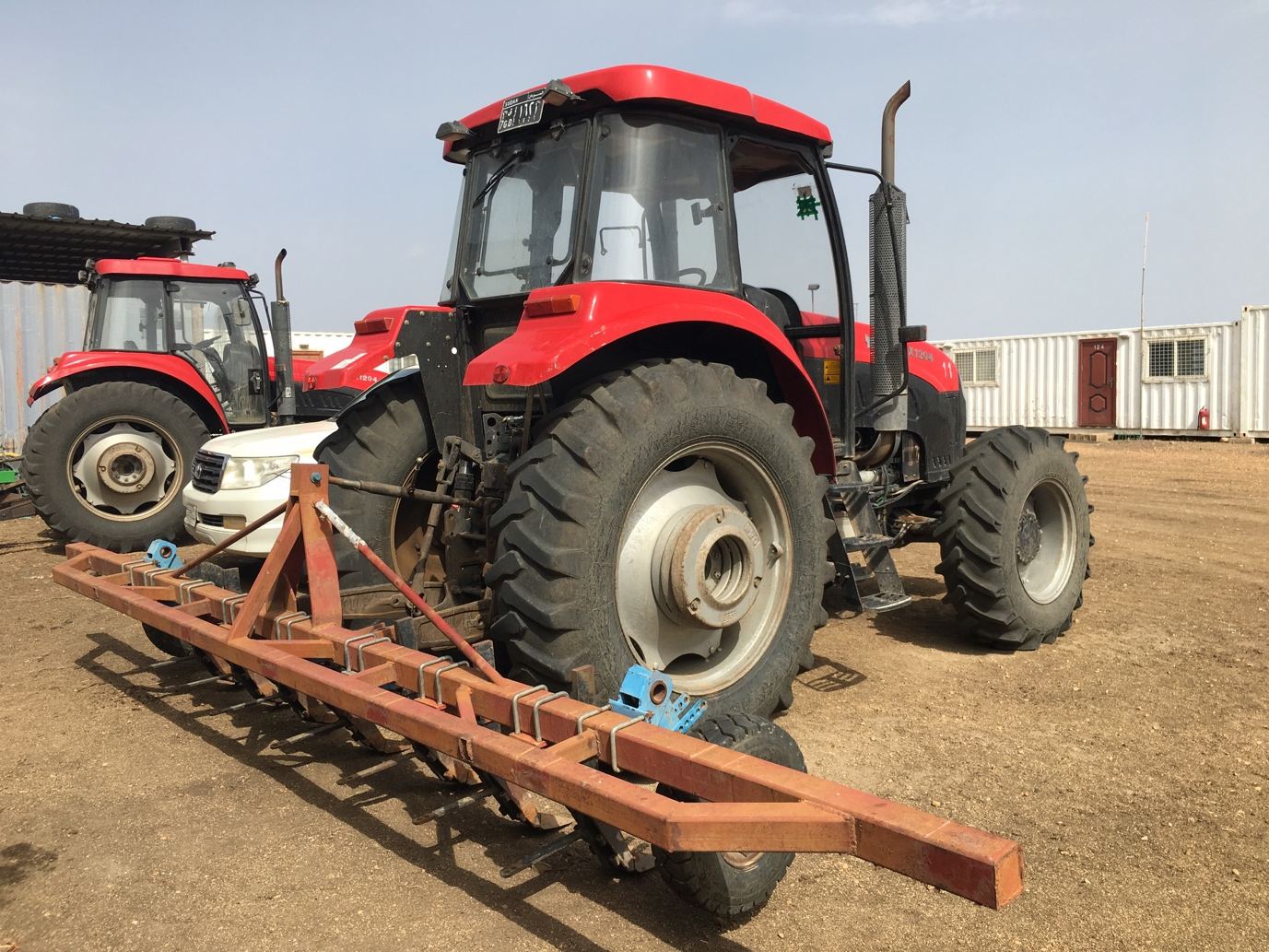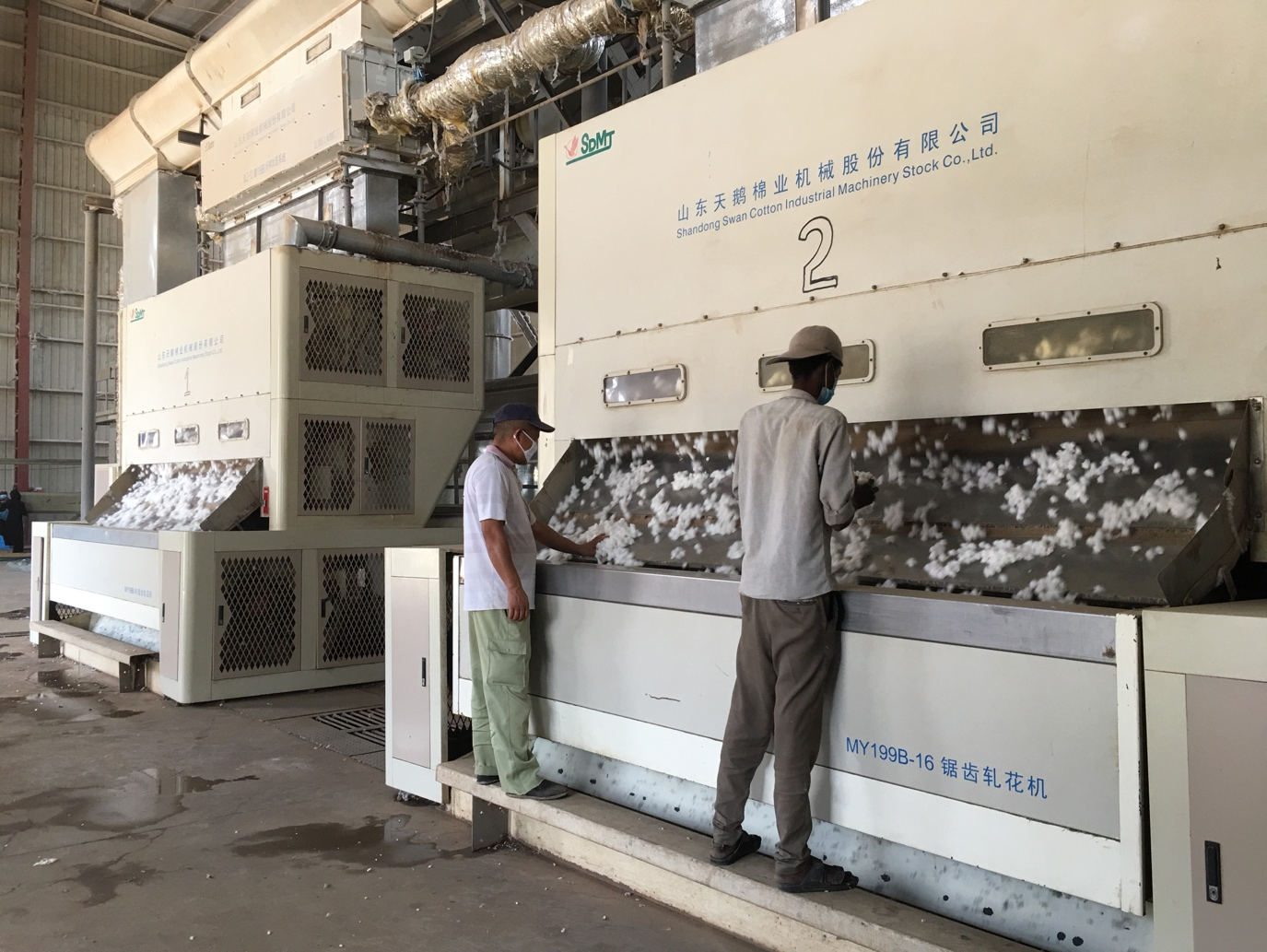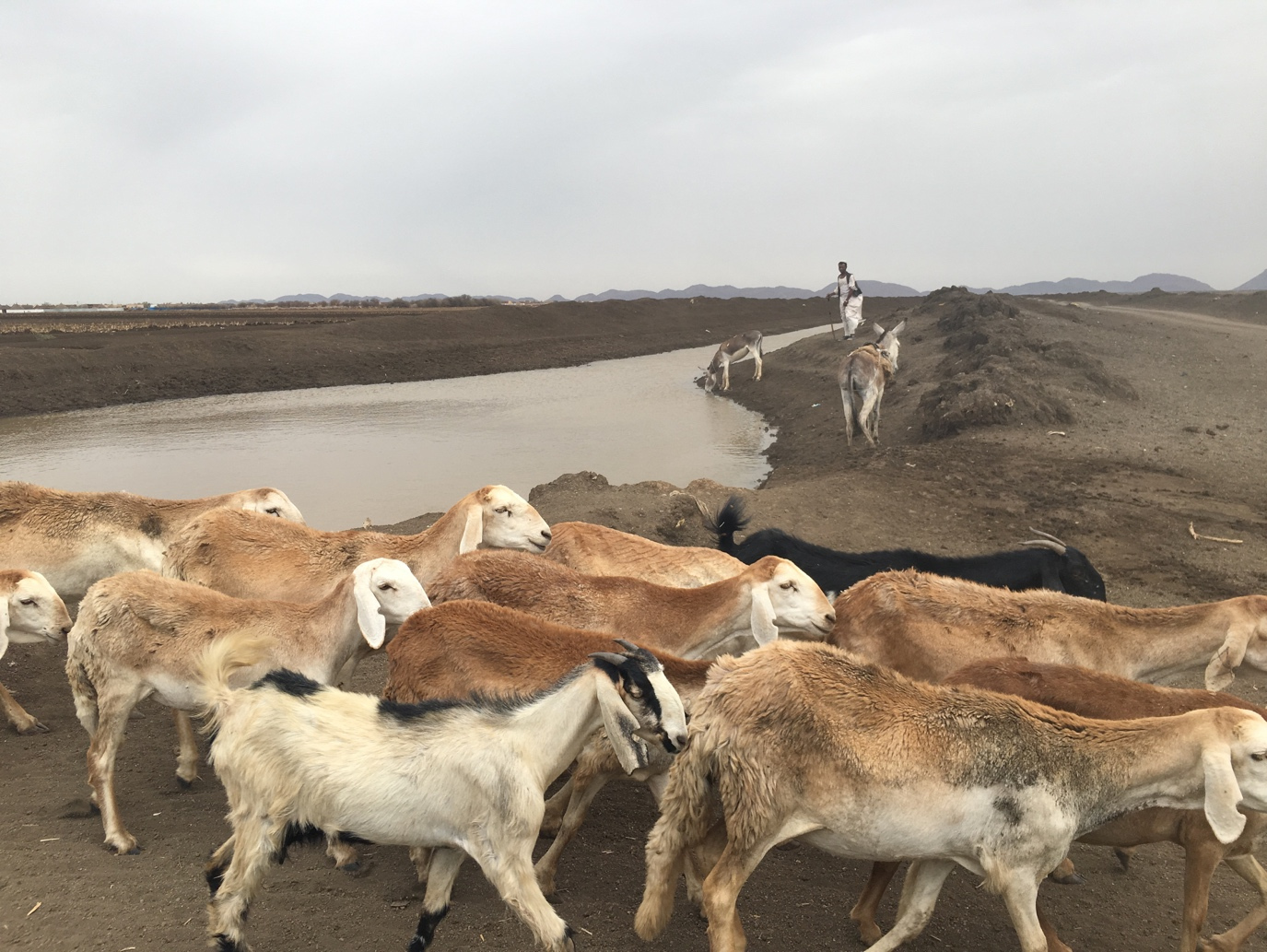The cotton industry in this African country, however, has not always been successful when it comes to completing the production chain from farming to processing to textile making.

Heavy machinery from China facilitates cotton growing in Sudan. /CGTN Photo
In recent years, as cooperation between China and African countries has enhanced, many Chinese companies in the country have started lending a helping hand.
It’s the start of cotton planting season in Sudan’s Qadarif state. 30-year-old Abdeen Shaa Edeen has been growing cotton for the past three years. He told CGTN that he has over eight hectares of cotton fields. It’s his main source of income, and enough for his family. The profits also provide him with enough to buy land, tractors, and build new houses.

New Epoch’s cotton ginning factory has an annual production capacity of 15,000 tonnes of lint cotton. /CGTN Photo
Thanks to the income from cotton, Abdeen could afford to get married and become a father. His family is one of the successful stories in the town of Faw, a place that has benefited from a farming cooperation agreement with China's New Epoch Agricultural Development Company Ltd. (NEAD).
Shaa Edeen Ahmed, Abdeen’s father, told CGTN the whole family had benefited from contract farming, in which the company provides cotton seeds, fertilizer, machinery and other resources, and when the harvest season comes, the company will buy the produce at a much more reasonable price than the market.
Sudan used to be a major supplier of cotton around the world, but in recent decades, production has experienced a sharp decline due to disease and pest damage.
In 2010, Chinese experts came here and helped develop a new type of cotton. After years of trials, it now covers more than 90 percent of Sudan’s cotton plantations and benefited over 200,000 growers in the country.
New Epoch was launched in Sudan in 2012. It invests in cotton production and processing as well as marketing.

Qadarif State is part of Sudan’s Rahad Irrigation Project. But inadequate water sources have hindered its agriculture and affected people’s daily life. /CGTN Photo
The company’s cotton ginning factory has an annual production capacity of 15,000 tonnes of lint cotton. Tian Zhonghua, the project manager, said this year the company planted 10,000 hectares of cotton, and they plan to grow 60,000 hectares of cotton in the next few years.
Chinese companies are helping Sudan build textile and ready-made clothing factories to complete the cotton industry's chain of production. Raw cotton seeds can be processed to make cooking oil, and its leftovers can be turned into animal feed. It helps people like Abdeen get a step closer to fulfilling their small dreams.


